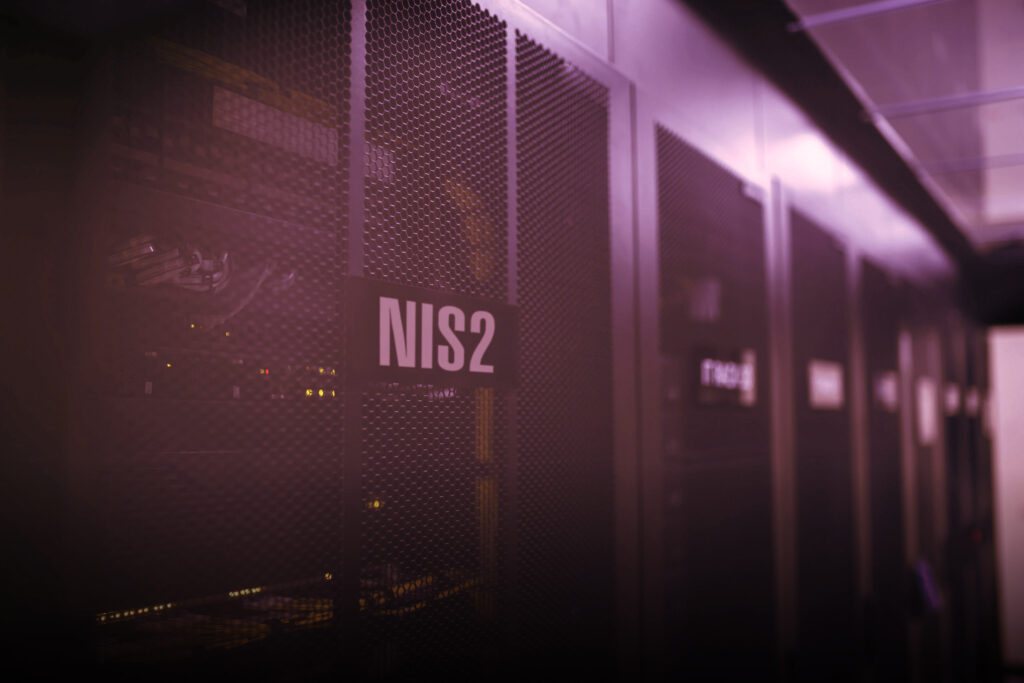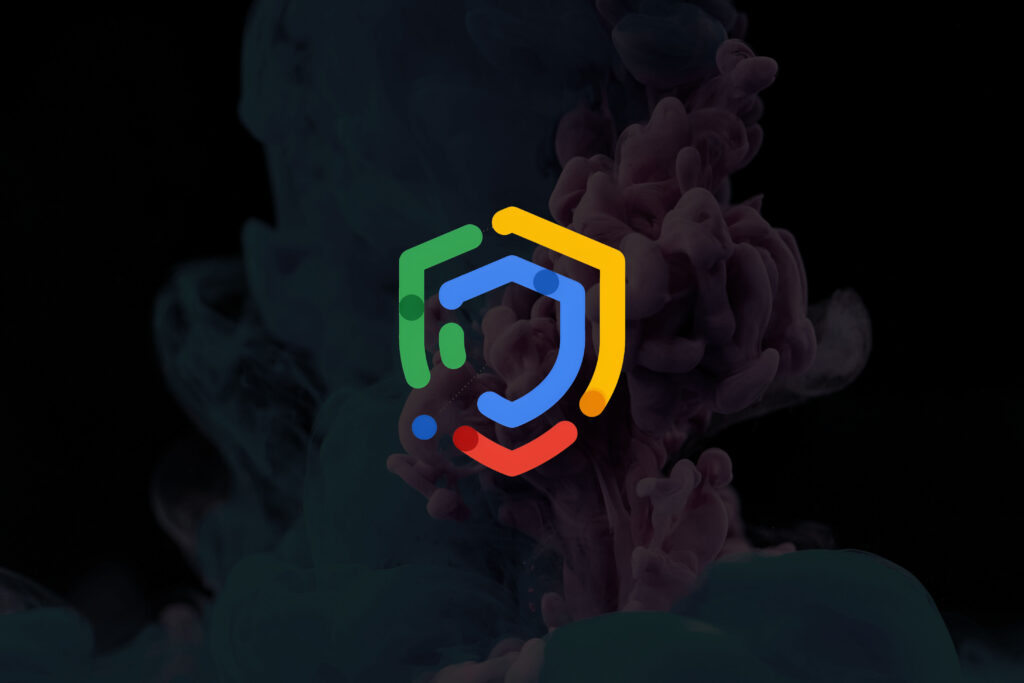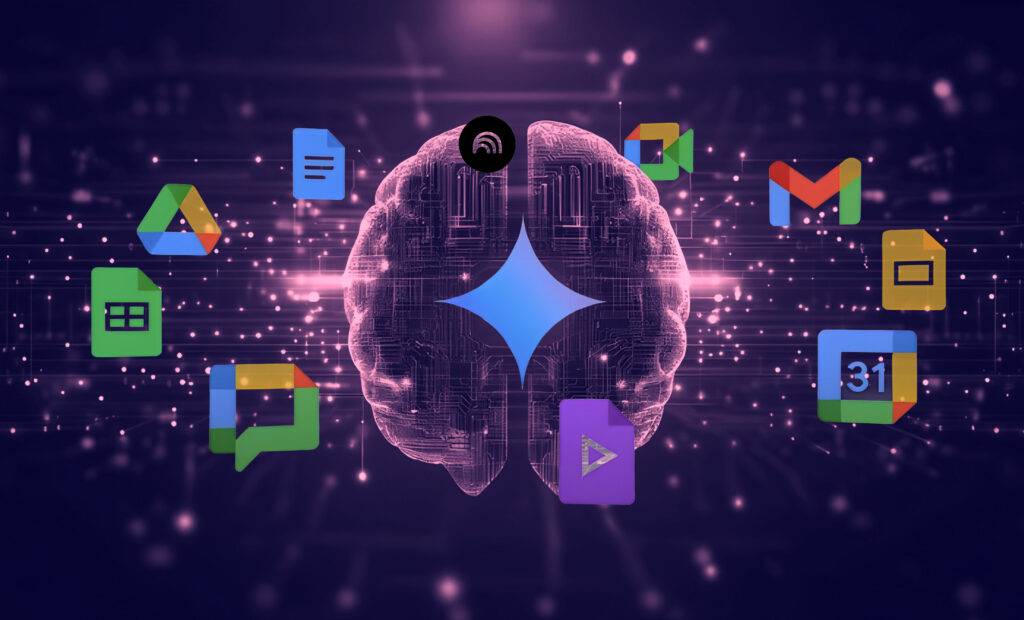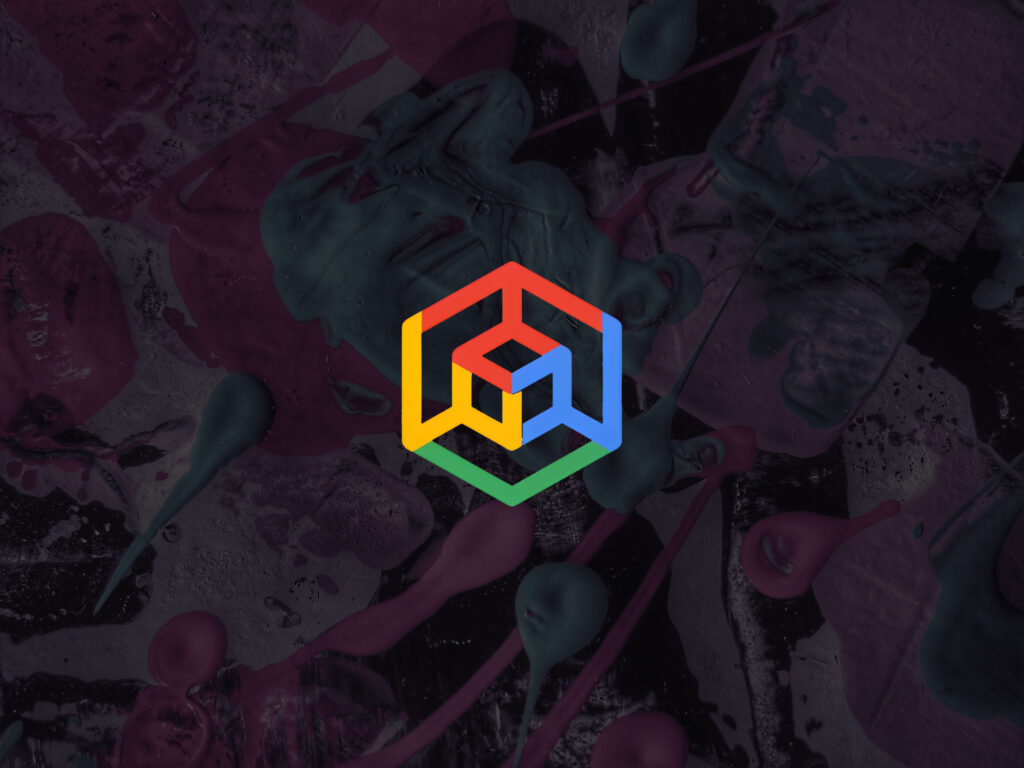Ready to migrate your organization to cloud computing? The last few years, Belgian companies are increasingly seeking out the benefits offered by cloud platforms. However, it can proof quite the struggle to find the cloud solution that perfectly fits your needs.
In this article, we compare two giants: Google Cloud and Microsoft Azure. You’ll get a brief breakdown of the products, global reach, security and compliance, AI, community and resources, customer support, and pricing.
What are cloud services?
In simple terms, cloud services provide a virtual space where you can store, access, and manage your data and applications over the internet. There are quite a few platforms out there that offer some variety of these services. And today we’re zooming in specifically on Google Cloud and Microsoft Azure.
Why cloud services for your company?
Before we start our deep dive, let’s explore why moving to the cloud is incredibly beneficial for your organization.
The cloud allows you to move faster, be more agile, and innovate your business. It transforms the way you work, communicate, and collaborate. Which is, to be honest, a true necessity to stay competitive in today’s increasingly digital world. Cloud services make it easier to improve and embrace innovation and incorporate AI and machine learning into your day-to-day business operations.
What is Google Cloud?
Google Cloud is an extensive set of cloud computing services. Google runs their Cloud platform on the same infrastructure they use internally for their well-loved consumer products, like Google Search, YouTube, and Gmail.
The list of available Google Cloud services is long—and keeps growing. When developing applications or running workloads on Google Cloud, you can mix and match these services into combinations that provide the infrastructure your organization and teams need.
Implement AI in your day-to-day business, make data-driven decisions thanks to real-time data insights, build the most powerful and cost-effective cloud infrastructure, utilize collaborative tools to boost teamwork, and use security tools to protect your data and business.
What is Microsoft Azure?
Microsoft Azure, formerly known as Windows Azure, is Microsoft’s version of Google Cloud. It’s a suite of cloud services designed to help you create new solutions to meet your organization’s challenges and prepare for the future.
You can build, run, and manage applications using the tools and frameworks of your choice. Microsoft Azure helps you take it up a notch and brings your business to the next level.
What’s the biggest difference between Google Cloud and Microsoft Azure?
At first glance, you wouldn’t expect it. But Google Cloud and Microsoft Azure are fundamentally different. “How so? Don’t they offer the same services?” Yes and no. They both offer cloud platforms; however, their foundations are built on other philosophies.
Google has a fundamentally open mindset. They have the know-how, because they created solutions to problems only they encountered. Google empowers you to innovate, meets you where you are and adjusts to your way of working.
In Belgium, it’s almost a matter of course to pick Azure. However, Google Cloud proves to be a great alternative.
Overview of services
When picking the cloud solution of your choice, it’s important to know what services each has in store for you. Essentially, both platforms present similar services and capabilities. Google Cloud offers over 100 products and services and while Microsoft Azure has more than 200 products and services available.
Here’s a quick rundown of the top 10 Google Cloud Services and Microsoft Azure Services in 2024.
Top 10 Google Cloud Services 2024
- Google Compute Engine
Google Compute Engine provides scalable, flexible, and customizable virtual machines (VMs) on demand for hosting and running applications and high-performance computing tasks.
- Google App Engine
Google App Engine simplifies the development and hosting of web applications in Google-managed data centers.
- Google Cloud Storage
Google Cloud Storage offers scalable, secure, and highly durable storage for large amounts of unstructured data.
- Google Kubernetes Engine (GKE)
Google Kubernetes Engine is an environment for managing, deploying, and scaling containerized applications. Kubernetes was originally developed by Google and was released as open source in 2014.
- BigQuery
BigQuery is a serverless data warehouse known for its fast SQL queries and effortless integration with other Google services. It turns large datasets into valuable business insights.
- Cloud SQL
Cloud SQL is a fully managed database service that simplifies setting up, maintaining, managing, and administering relational databases on Google Cloud.
- Google Cloud Functions
Google Cloud Functions is a serverless execution environment used for building and connecting cloud services.
- Google Cloud AI and Machine Learning Solutions
At Google, AI is an inherent part of their DNA. Google Cloud provides services and tools for artificial intelligence and machine learning, such as Vertex AI, Gemini, and Vision AI.
- Google Cloud Pub/Sub
Google Cloud Pub/Sub is a many-to-many messaging service for exchanging messages between applications and services. It’s secure and reliable.
- Google Cloud Networking
Google Cloud Networking offers a wide variety of networking services. Such as Virtual Private Cloud (VPC), Cloud Load Balancing, Content Delivery Network (CDN), and Cloud Interconnect.
Top 10 Microsoft Azure Services 2024
- Azure Virtual Machines (VM’s)
Azure Virtual Machines provides scalable and customizable virtual computers in the cloud. Including a range of networking capabilities and services such as Azure Virtual Network, VPNs, and Azure ExpressRoute.
- Azure App Service
Azure App Service is a fully managed platform for building, deploying, and scaling web apps and APIs.
- Azure SQL Database
Azure SQL Database is an intelligent, fully managed generational-purpose relational database service.
- Azure Kubernetes Service (AKS)
Azure Kubernetes Services simplifies the development, deployment, and management of containerized applications.
- Azure Cosmos DB
Azure Cosmos DB is a fully managed NoSQL, relational, and vector database for building highly responsive and scalable applications.
- Azure Functions
Azure Functions is a serverless, event-driven compute service used for building applications more efficiently in your preferred programming language.
- Azure Blob Storage
Azure Blob (Binary Large Object) Storage is a scalable cloud storage that lets you store large amounts of unstructured data.
- Azure Active Directory (AD)
Azure Active Directory is a cloud-based identity and access management service used for securing resources and applications.
- Azure DevOps
Azure DevOps is a collection of tools for planning, collaborating on, and delivering software development projects.
- Azure Cognitive Services
Azure Cognitive Services is a set of cloud-based APIs for adding AI capabilities to applications, including vision, speech, language, and decision APIs.
Global reach and regions
The cloud doesn’t exist in just one place; it spans the globe. No wonder both Google Cloud and Microsoft Azure have data centers strategically scattered worldwide. These data centers act as digital hubs for your information and data. The closer they are located to you, the faster your data can travel.
Right now, Google Cloud is available in 40 geographic regions and Microsoft Azure in over 60. Google already has a datacenter located in Belgium (Saint-Ghislain). Back in 2021, Azure announced a new datacenter region that carries the name Azure Belgium Central, or ABC for short. Located in the heart of Europe, and in the heart of Belgium, three new datacenters will make their way to locations around Brussels.
Yes, Google Cloud might have a lower number of data centers compared to Azure. However, they are known for their high-performance global network infrastructure. Their strong expertise in network optimization certainly comes in handy to ensure fast data transfer and low-latency connections.
Security
You wouldn’t store your valuable possessions in a flimsy cardboard box, would you? Similarly, your digital data needs a robust security system.
When comparing security in cloud solutions, your focus should be on the technologies, processes, controls, and policies that are in place to protect your cloud-based systems, valuable data, and intricate infrastructure.
Both Google Cloud and Microsoft Azure are really committed to providing top-notch cloud security. And they do this in three ways:
- Firstly, there is the security of the cloud platform. Which entails security capabilities that are built into the infrastructure of the platform. This layer provides protection by default.
- Next up, you have security in the cloud platform. These configurable security products and services within the platform protect all your applications and data.
- Lastly, there is security beyond the cloud platform. So, wherever the location, you can rest assured your valuable assets are protected.
As we already mentioned in the beginning of this blog, Google and Azure stem from a fundamentally different philosophy.
On the one hand for Azure, protection and safety means building a sturdy stronghold to keep the threats, the danger, and the world outside.
Google, on the other hand, has an open mindset. Google thinks: “we live in an open world, there is no such thing as a safe stronghold.” Data security and privacy are Google’s top priority and have always been.
In this section, we will compare some of the key features of Google Cloud security versus Microsoft Azure security.
Encryption
Whether your data is stored in the cloud or not, encryption is a critical requirement. Encoding your data ensures that it is almost impossible to decipher without a decryption key. Azure and Google Cloud support encryption as default using 256-bit AES.
They also offer the ability to control your own encryption keys and deliver encryption at rest and in transit. Google refers to its service as the Cloud Key Management Service, while Microsoft refers to its Azure service as Key Vault.
As you can see, both Google and Azure encrypt your data. But there is a distinction. Google has different mindset when it comes to safety. And this is based on how they originated as a company and how they operated on an internet-scale – not just a global scale. Google – by default – applies Zero Trust principles.
This is what Google has to say about Zero trust:
“Every user is hostile, and threats are omnipresent, both inside and outside the network. Therefore, any traffic that does not have explicit permission is automatically denied access.”
Firewalls
Firewalls provide your first line of network defense for any infrastructure. Google Cloud, as well as Azure, offers state-of-the-art firewalls. For Google this is the Cloud Firewall (NGFW) and for Microsoft it’s Azure Firewall. These firewalls offer different configuration capabilities through firewall rules, allowing you to control and keep tabs on who accesses your network.
Additionally, Azure offers firewall-as-a-service products. Such as Azure Web Application Firewall, and the newly launched Azure Firewall Manager, which are both cloud native.
Identity Access Management (IAM)
An Identity Access Management system – or an IAM system – stops unwanted visitors at the door. It allows you to make sure only the right people have access to your organization’s system, data, and resources.
Again, both Google and Microsoft offer a built-in IAM system. Within Google Cloud you have Cloud Identity and Access Management (IAM) and Microsoft has Azure Active Directory. With features including user roles, access policies, and multi-factor authentication, both providers offer a similar range of features and functionalities.
Compliance
To meet some of the toughest compliance requirements, both Google and Azure implement strict security policies and processes. Those compliance requirements include CSA STAR, GDPR, HIPPA, PCI-DSS, and a range of ISO standards.
Azure compliance is the highest of any cloud provider, providing over 90 compliance offerings across 50 global regions. In part, this has to do with the fact that Microsoft has a longer track record of chasing specific certificates.
Google compliance follows close behind, meeting 45 compliance standards. Yes, Google holds less published certificates than Microsoft. However, you don’t have to worry about Google being “not as safe” as Microsoft. It still is.
Google has the most important certificates to be compliant with local regulations and makes it a strategic priority to apply for more specific certificates. You might need an industry specific certification. In that case, it’s best to look both at Microsoft and Google to see which solution fits your needs.
Storage services
When we talk about storage services in the context of cloud computing, we refer to the resources and tools to store, manage, and access data over the internet.
Compared to Azure, Google Cloud doesn’t offer as many advanced storage features. However, it makes up for it with ease of use and affordable storage pricing.
Compute services
Computing services are a fundamental part of cloud computing, since they provide computational power for a variety of tasks, such as processing data, running applications, or hosting websites.
Google Cloud and Microsoft Azure both offer primary compute services. However, your go-to choice depends on your business’ needs. For example: Azure Virtual Machines are more flexible than Google Compute Engine. And Google Kubernetes is around way longer, making it a more developed platform than Azure Kubernetes Service.
 Machine Learning & (Generative) AI
Machine Learning & (Generative) AI
AI and Machine learning is steadily growing to be an indispensable part of each business. And luckily, both Azure and Google Cloud offer AI and ML services. The products have a wide range of speech-to-text, DevOps, and other applications for AI/ML.
Keeping in mind Google’s history in developing machine learning technologies (such as Tensorflow), it’s really no surprise they put a stronger focus on AI and machine learning than Azure. Google literally had to build their own technologies, because they were not available on the scale that Google was operating on. And when you have them, why not make them available to other businesses? For example, Gemini, Google’s AI model. Well, now they created an open-source AI model based on Gemini: Gemma (2B and 7B). Gemma is available for everyone on Google Vertex AI.
Google Cloud is considered to be the best place for startups to build with AI. It offers a broad choice of models and developer tooling, open and integrated AI stack, and expanding resources, support, and routes-to-market for early-stage companies.
On top of that, Google won’t force you to go full-Google. You want to use other technologies in combination with Google Cloud? Go ahead! They’re flexible and, as always, meet you where you are.
You hopped already on the Azure train? No worries! You’ll still reap the benefits of AI and ML. Within the Azure platform there is a range of various services including Azure Machine Learning, Azure Cognitive Services and Azure Databricks.
Community and Resources
In the world of the cloud, having a community to turn to and resources for guidance is invaluable. Whether it’s forums, tutorials, or official documentation, these resources act as your digital support system.
Google has a well-thought-out resources platform. You can learn and build with their Quickstarts (tutorials and walkthroughs), blog, learning hub, on-demand and classroom training, certification and Cloud Architecture Center to get reference architectures and best practices. You can also check the Developer Center, attend events and webinars, and ask questions, find answers and connect in the – very active – Google Cloud Community.
Similarly, Azure offers a wide range of resources on their platform. Such as learning paths, training and certification, inspiring case studies, reports, whitepapers, technical documentation, Quickstart templates and a Developer Community.
Customer support
When everything runs smoothly, all is well. Until… it’s not. In that case you might need some support, and fast. Let’s compare customer support between Google Cloud and Microsoft Azure.
Google Cloud Customer Support
Google Cloud offers its customers Basic Support for free. This means you get access to documentation, community support, Cloud Billing Support, and Active Assist Recommendations.
Want to get more direct access to support? Google offers three different paid tiers of Customer Care:
- Standard support – $29 per month + 3% of monthly charges fee
- Enhanced support – $500 per month + 3% of monthly charges fee
- Premium support – $12.5K per month + 4% of monthly charges fee
Microsoft Azure Customer Support
Microsoft Azure makes basic support available to all Azure accounts. Basic Support entails access to 24/7 self-help resources, including Microsoft Learn, Azure Portal how-to videos, documentation, and community support.
You can purchase access to more in-depth support, varying in terms of scope and price:
- Developer support – $29 per month
- Standard support – $100 per month
- Professional Direct support – $1,000 per month
- Enterprise support – Microsoft does not disclose the pricing for Enterprise support.
Pricing
Aside from features, services and extras, price is an important factor for many organizations. Understandably so. Before you embark on your pricing journey, just know that you won’t find any precise pricing online.
However, you can use the price calculator that both Google and Microsoft created to get an estimate.
Google Cloud operates on a pay-as-you-go (PAYG) pricing structure. Meaning, you’ll only be charged for the specific resources and services you used. To ease into things, GCP offers new customers $300 worth in credits, valid for 90 days, to run, test and deploy workloads. However, partnering up with GC innovate will get you a $500 credit. Next to that, customers can use more than 20 products for free, up to monthly usage limits.
Google makes it easy to stay in control of your spending. With budgets, alerts, quota limits, and other free cost management tools you effortlessly keep tabs on everything and optimize your costs.
Get an estimation via their nifty calculator.
Azure
Just like GCP, Microsoft Azure uses a pay-as-you-go model. When signing up as a new customer you’ll also receive credits, in this case worth $200, valid for 30 days – to get the hang of things.
Azure offers a variety of built-in tools and services to compare costs, save money, and optimize your Azure resources.
Simulate a first cost estimation via their handy calculator.
And there you have it: a clear breakdown of Google Cloud and Microsoft Azure. Two platforms that offer similar services and options, but with very different backgrounds and philosophies.

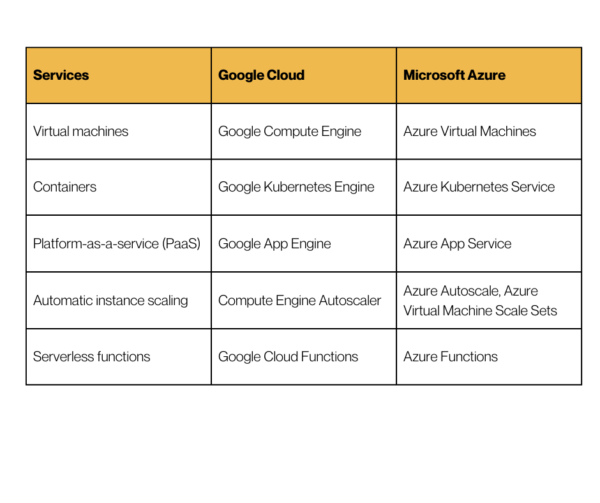 Machine Learning & (Generative) AI
Machine Learning & (Generative) AI
